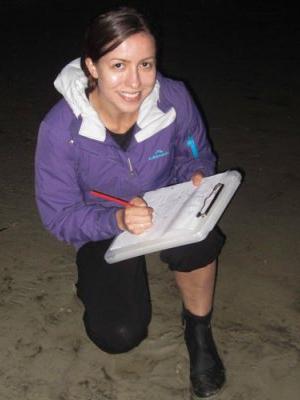Solving environmental problems is what Daniella Teixeira enjoys most about her career in conservation biology.
As a Fisheries Scientist at Fisheries Queensland, Daniella is responsible for monitoring recreational fishers.
“My role is research based, allowing me to apply the scientific knowledge and skills I gained through my university studies,” she says.
“As well as my knowledge of marine science, I would say the most important skills for this role are being able to design experiments, statistical analysis, writing, and public speaking.”
Daniella completed a Bachelor of Marine Studies majoring in Marine Biology and Ecology with Honours and then worked with Fisheries Queensland as a boat ramp surveyor.
She then moved into roles with the Department of Environment and Heritage Protection in koala conservation and coastal management.
After several years in the workforce Daniella returned to UQ to study a Master of Conservation Biology.
“I wanted to further improve my knowledge and skills to advance my career,” she says.
“The Master of Conservation Biology appealed to me as it extended my knowledge not only in statistics, GIS and experimental design, but also conservation policy, industry engagement and philosophy.
“It provided a fantastic bridge between university science and real-world application, and no other program in Australia matched the breadth it provided.
“I can honestly say that it was a big leap in the right direction for my career.”
Daniella’s current role with Fisheries Queensland requires her to collect data to determine the size of the recreational catch across the state, which feeds into fish stock assessments and policy, and ultimately to the sustainability of the state’s fisheries resources.
“Working in the public service means that environmental objectives must be balanced against other public interests, but the work is satisfying since this is the reality of environmental decision-making and it presents great opportunities to achieve meaningful results,” she says.
“An average day on the job involves statistical analyses, scientific report writing, and brainstorming new ideas for monitoring recreational fisheries.
“I also have the pleasure of supervising a number of UQ undergraduate students and work experience interns, which is a new and exciting challenge for me.”

